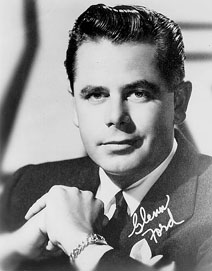In an article in today’s Washington Post there is a story about surveillance cameras in Bellows Falls, VT ("Federal Grants Bring Surveillance Cameras to Small Towns" by David A. Fahrenthold, Thursday, January 19, 2006, Page A01) which shocked me so much, that it made me want to cry out across the Atlantic. I'll hopefully be preparing an editorial for the monthly
Vermont Commons--and calling officials in Bellows Falls--in the coming days. But for the moment, please let me share some thoughts with y'all.
Basically, the Bellows Falls police department, using federal monies, has put up 16 surveillance cameras--just three less than D.C., which has 181 times more people than Bellows Falls, according to the article.
THIS is deeply troubling stuff, ladies and gentlemen, especially considering that we are talking about Vermont. I don’t know what they expect to monitor. Kids playing hooky from school? Someone running a red light? Smoking a joint? Jaywalking?
People say: “Well, those cameras are OK. As long as you’re not doing anything wrong, you have nothing to worry about!”
OK. Fair enough. But aren't we then abdicating our collective responsibilities--as a people, as a community and as parents--to be involved in the activities of our fellow citizens, to feel responsible for the good of our communities and the behavior of our kids? Having surveillance cameras along Main Street only generates a sense of complacency among us all, and feeds into an attitude increasingly willing to depend on even MORE government.
Others people say: "Well, in this age of terrorism, we need surveillance, we need more security, we need to trade in our individual rights and curtail our freedoms so that we may feel safe."
OK. Fair enough. But in this age of global terrorism, we have to find a way to NOT fall into that [false] sense of security that big-brother government promises. Like the Communists of the 20th century, Al Qaeda is organized in cells which infiltrate, penetrate and embed themselves everywhere. The best way to fight this is NOT through top-down surveillance on our shores; it is by strengthening our social relations, by getting to know our neighbors and those around us, by contributing to a stronger civil society (think De Toqueville)--in short, by being engaged in our culture.
Like a bloated welfare state that ostensibly takes care of the poor so we don’t have to, increased surveillance--whether at the hands of local, state or federal authorities--usurps the very responsibility that we all have to ensure local safety, respect the law, maintain public order. It is up to all of us (not the State) to make sure that our children know how to behave properly, that our neighbors know how to be civil, that our communities strive to be healthy, wholesome and good.
Isn’t THIS precisely the kind of issue that could--that should--unite us, young and old, liberal or conservative, Yorker or Green Mountain Boy, Democrat or Republican? Isn’t the growth of the coercive and controlling powers of the state our common enemy? Is not the theme--the very raison d'etre--of our decrepit Republic, freedom?
Some of you may cringe when I say this but "government is the problem, NOT the solution." How many more taxes must we pay, how many more federal agencies do we need, how many more bureaucrats must we hire, how many more cameras do we need before we realize that we are, day-by-day, treading more firmly on the road to serfdom?
Or is our goal to be as overtaxed, controlled, regulated, monitored and stagnant as Europe? This is a dangerous and unwelcome development.
But I suppose easy federal money was just too good to pass up, eh Police Chief Clark?


